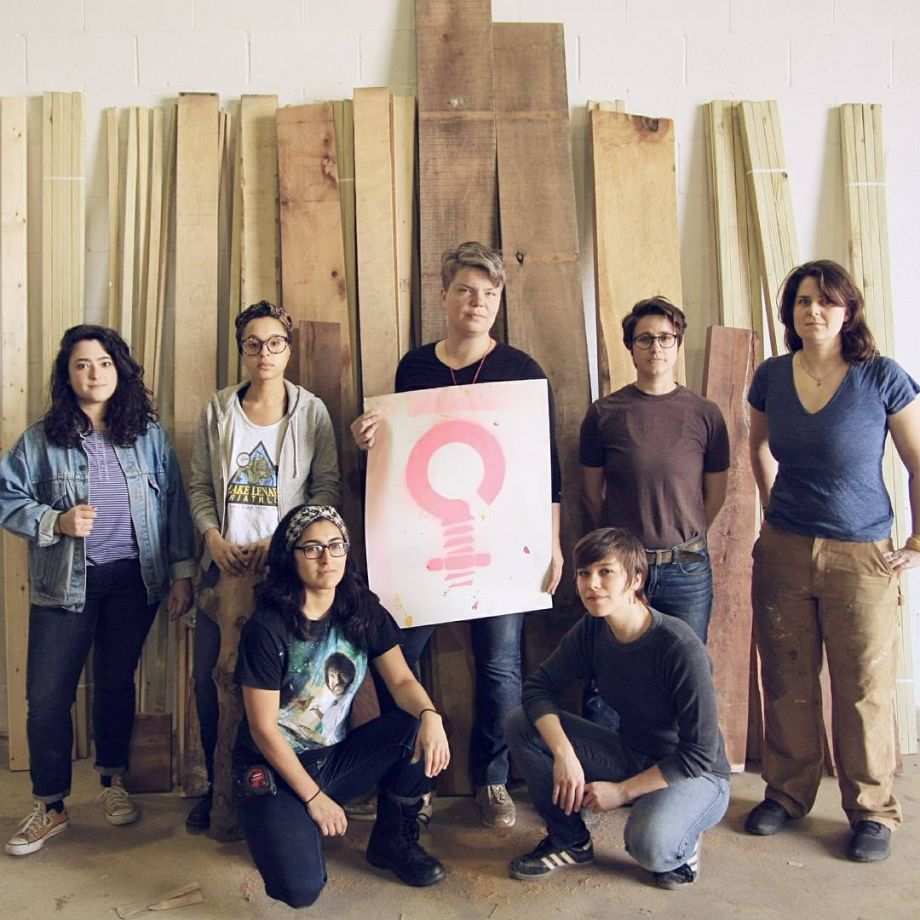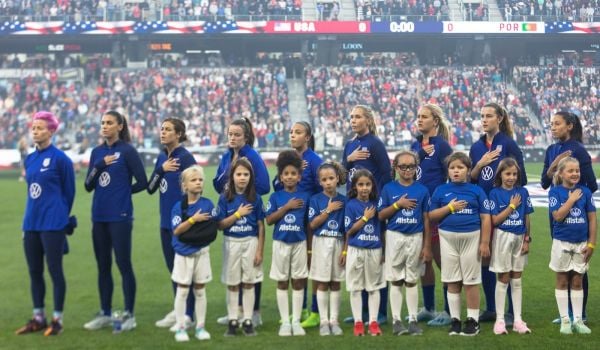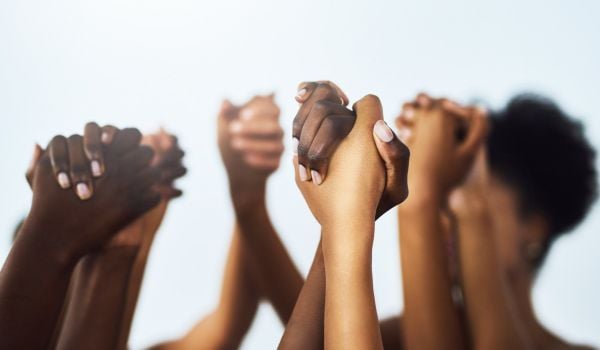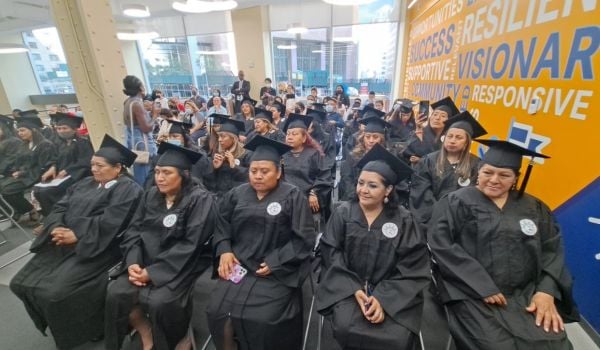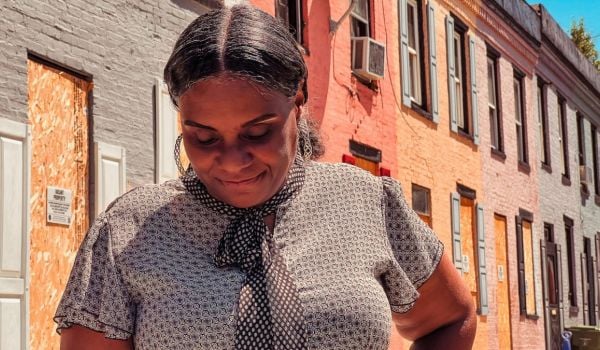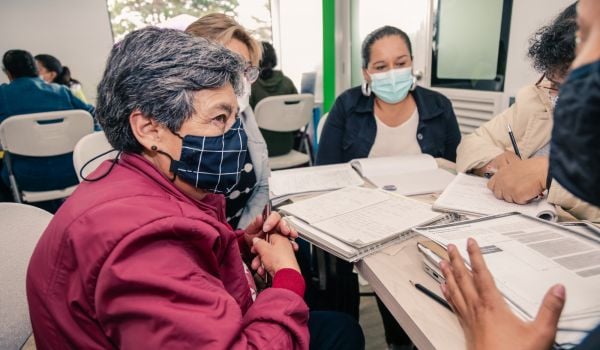Sarah Marriage was an engineer, but she wanted to make furniture.
“I had been interested in making furniture,” she says, “but life gets in the way, and you have to get jobs and things.” Still, Marriage says juggled her furniture making while working full-time.
After six years at the drawing board, Marriage was ready to move on and to dedicate herself to her dream of creating furniture. In 2013, she won a coveted spot at the two-year furniture-making program at the College of the Redwoods in California where she brought together her artistic drive and her technical skills. Upon completing that program, Marriage migrated back to the East Coast to work in a New Jersey shop run by another fine-art furniture maker.
“Most of the other people in my shop were not art-furniture makers the way that I was,” Marriage says. She was also the only woman in the shop.
“I was craving that sort of more collectively creative environment you have when you’re in school,” Marriage says. So, in 2016, financed by a $25,000 fellowship, she established A Workshop of Our Own, “WOO,” in Baltimore, Maryland.
WOO is a space where women and gender non-conforming people, who represent less than 10 percent of the people in the fields of woodworking and furniture-making, can train in woodworking and have space to create their own work.
“There’s something magical about being all women in a woodshop,” Marriage says. “It’s pretty powerful to walk into a room where people are working and it’s only women or non-binary people.”
Turns out, though, that Marriage isn’t the only one who’s put this idea into practice.
Women’s Woodshop, in Minneapolis, Minnesota, is another woodworking space aimed at female and non-binary people. Like WOO, it has also just celebrated its two-year anniversary. The Hammerstone School in upstate New York teaches women carpentry skills — as opposed to fine woodworking. There are also summer building camps aimed at girls, such as Girls Garage and Girls Build.
These spaces and others like them aim to give girls, women and nonbinary people a space to develop skills in what is often considered a masculine domain. At the same time, the goal is for the construction process to build self-confidence.
Yet Marriage’s work aims to go well beyond the pink-tool trend.
“Immediately, it was sort of like the first experience with woodworking where it wasn’t just jumping into using equipment, but understanding how the trees are growing and how to harvest them,” says Sarah Elder. Elder graduated from an introductory woodworking class at WOO last year. This big-picture approach to woodworking, Elder says, helped frame her understanding of the entire creative process and gave her tools to make aesthetic choices based on this seed-to-table vision.
At WOO, Elder says, she found a level of collaboration and cooperation that she’d never had before.. “Even if it was something as simple as moving a very heavy bookshelf across a room, the level of communication and collaboration and bouncing ideas off of each other and actually being heard was really remarkable,” Elder says.
Elder acknowledges that it was initially woodworking that “lured” her to the space, but she says that the way people are personally invested in WOO has played a big part in keeping her actively involved.
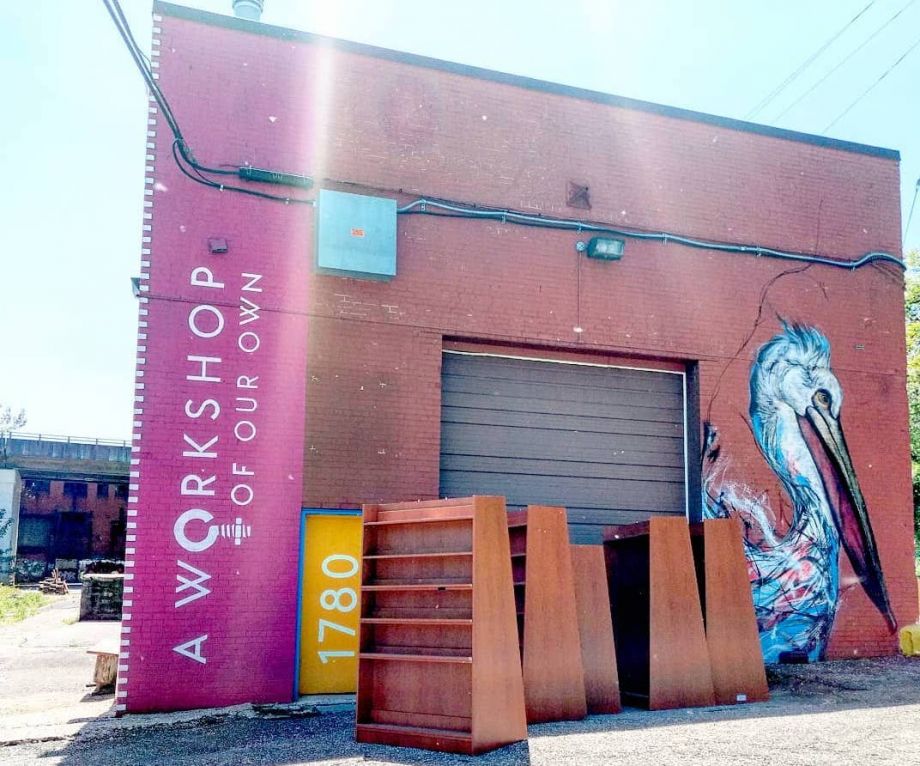
(Courtesy A Workshop Of Our Own)
Shalon Edwards, a scientist at the University of Maryland, had a practical reason to join a woodworking workshop.
“I actually got involved with WOO in tandem with me purchasing my first home,” Edwards says. Edwards had attended Xavier University in New Orleans, and was displaced to Baltimore following Hurricane Katrina. But she returned to the city every spring break to volunteer with Habitat for Humanity rebuilding homes. That experience, she says, made her fall in love with power tools.
Edwards purchased a home in Baltimore in 2016, and a year later, she saw WOO’s announcement on Instagram that it was seeking interns. “She needs help; it’ll help me; let’s do it,” Edwards thought when she saw the notice. “Furniture building wasn’t something I was skilled in,” she says. “And I wasn’t quite seeing what I envisioned for my home, so I figured maybe I could build it better than I could buy it.”
While Edwards agrees with Elder that the relationship dynamics are what make WOO special, she also fell in love with the work. WOO’s space, she says, has an iron, spiral staircase that she helped build. “It was the first time I’d ever used an angle grinder. I felt very cool with all these sparks,” Edwards says.
Two years later, Edwards is one of WOO’s “core volunteers.” She teaches a class on making cutting boards and volunteers at events to spread the word about WOO.
WOO isn’t just a space for women and nonbinary people to pursue a hobby. The workshop has opened up economic doors, too. Before starting at WOO, Elder worked as a museum docent. Now, she works with a woman-owned contracting company that specializes in bathrooms and kitchens. The business started because the owner realized there was a demand for women contractors. “There was a woman who felt she was being emotionally abused but was afraid her male contractor would sabotage her kitchen,” Elder recalls.
The firm, she says, charges rates that are higher than other firms to ensure that Elder and her colleague earn a living wage. But, she says, “but people are very much willing to provide that rate to have a relationship where you’re very comfortable changing your mind or speaking to people.” Getting a new bathroom or kitchen, Elder says, should be something the homeowner “should be excited about, and it should be an exciting prospect on both sides.”
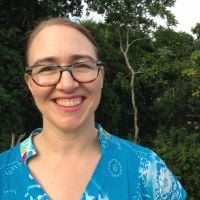
Zoe Sullivan is a multimedia journalist and visual artist with experience on the U.S. Gulf Coast, Argentina, Brazil, and Kenya. Her radio work has appeared on outlets such as BBC, Marketplace, Radio France International, Free Speech Radio News and DW. Her writing has appeared on outlets such as The Guardian, Al Jazeera America and The Crisis.
Follow Zoe .(JavaScript must be enabled to view this email address)

